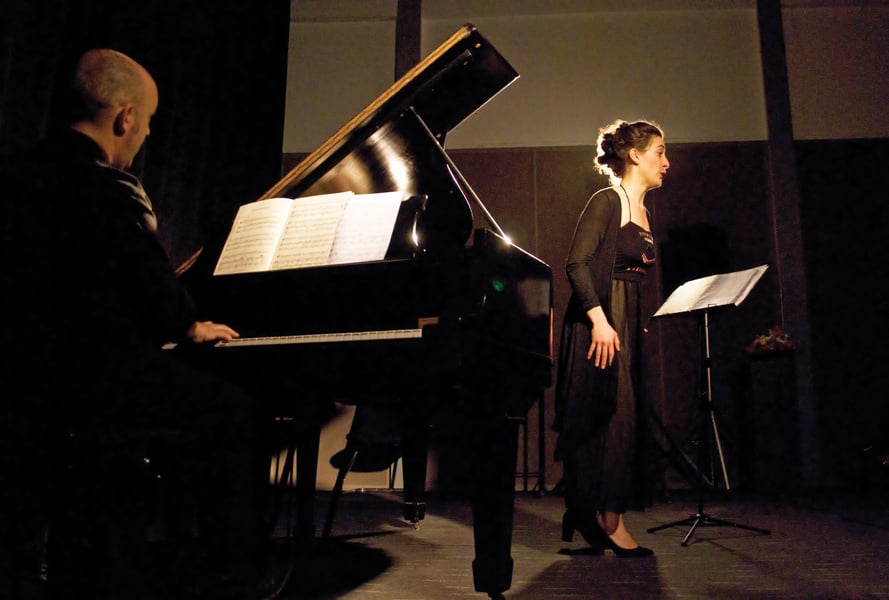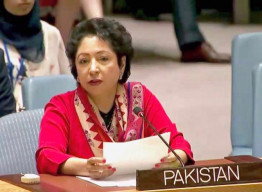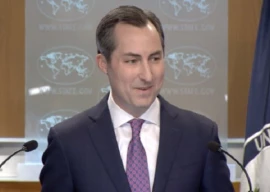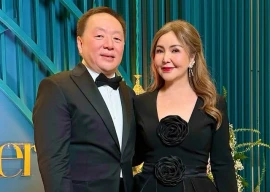
In fact, the only melody with which I was thoroughly familiar was Debussy’s masterpiece Clair de Lune, one of the finest tone poems ever written, which was played to perfection by Samuel Bore. It was the brightest bulb on the Christmas tree and received the widest, loudest and longest applause in the evening’s entertainment.

I tend to gravitate more towards opera, especially the works of Mozart, Wagner, Richard Strauss, Verdi and Massanet, and the instrumental music of Beethoven, Liszt, Brahms, Schubert, Rachmaninoff, Albeniz, Tarrega, Manuel de Falla and Turina. And yet, curiously enough, two of the three arias that I enjoy the most and those that give me immense pleasure when I listen to them are by Frenchman - the Berceuse from Joycelyn by Benjamin Goddard, the only composition that has survived from his repertoire and Printemps sa commence by Camille St. Saens, which is a great favourite with opera-goers.
De Massy must be congratulated for bringing virtually unknown vocal gems to the public’s attention. She does not have a huge voice but she knows how to use it. She came across as an effervescent, sensitive, warm, friendly performer, passionately involved in her work, with a store of musical intelligence. She had none of those ‘diva moments’ or quirks that some sopranos suffer from.
She was passionately interested in her songs and was extremely helpful by giving short introductions to the pieces she sang. Her diction was perfect. Her poise was remarkable. Now and then she gave a wry smile when members of the audience started to applaud before she has finished her song. The audience loved her.
They also loved Samuel Bore. He made a jolly good accompanist and also gave a polished performance when he was doing a solo on the keyboard, never putting a finger wrong, quick to recognise the music’s nooks and crannies.
Debussy who featured in the programme was among the greatest and most important of 20th century composers, both by reason of his own achievements and by the paths he opened for others to explore. His use of block-chords, of harmony with a modal flavour and based on the whole-tone scale, the delicate colours of his orchestration and his technique of layering sounds, yet wholly lyrical style of his vocal writing proclaim him as an innovator of the first degree. The contrast with Poulenc who also appeared in the musical fare is interesting. Poulenc’s music is eclectic yet strongly personal in style. It is essentially diatonic and melodious embroidered with 20th century dissonances derived possibly from the mixture of gaiety and manic depression.
On a purely personal note, I have a suggestion for the future. When Roberto Franceschinis, the Italian consul asked me a year ago what kind of music would go down well in Karachi, I answered unhesitatingly ‘i canzone di Napoli’ (Neapolitan folk songs). I believe the Alliance Francaise could also have a bash at something similar, such as Cabaret - the kind of songs that were immortalised by Maurice Chevalier, Tino Rossi, Lucienne Boyer and Edith Piaf that evoked the ambiance of Marcel Pagnol’s films. …There is no substitute for melody and lyricism, messieurs. It has been known to work every time.
Published in The Express Tribune, March 13th, 2014.




1734696044-0/ceo-(1)1734696044-0-165x106.webp)
1734714228-0/T-Edit-article-images-(2)1734714228-0-270x192.webp)



1734706682-0/featured-image-2-(3)1734706682-0-270x192.webp)

1734511806-0/Untitled-design-(5)1734511806-0-270x192.webp)
1734587529-0/Express-Tribune-(1)1734587529-0-270x192.webp)


1734468458-0/Copy-of-Untitled-(50)1734468458-0-270x192.webp)







COMMENTS
Comments are moderated and generally will be posted if they are on-topic and not abusive.
For more information, please see our Comments FAQ